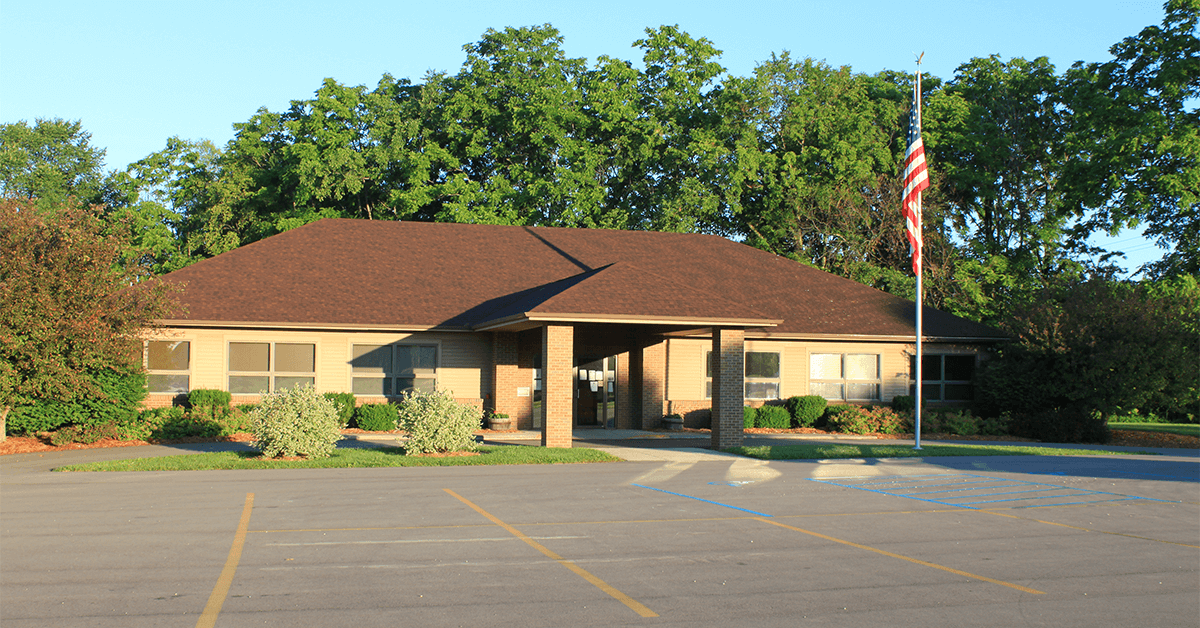Stepping Back from MIMJNews - A Personal Farewell

If you don't already know me, my name is Ryan, and I've been the sole owner, operator, and writer for Michigan Marijuana News (MIMJNews.com). Today, I'm writing with a heavy heart to announce that I'll be stepping back from this project.
This decision wasn't an easy one, but it's been weighing on me for a few weeks now. If you've been subscribed to the weekly newsletter, you might remember that I welcomed my fourth son into the world just a couple of months ago. Becoming a father again has been a joy beyond words, but it's also made me realize that my free time has become a rare commodity. Between family life and my responsibilities as a self-employed, stay-at-home parent, I simply don't have the bandwidth I once did to dedicate to this site.
Another factor in this decision is that the site hasn't gained the traction I'd hoped for. When I started MIMJNews, it wasn't about making money. I never expected this to be a big revenue stream, and honestly, I was okay with that. But I did hope for some engagement-whether that came in the form of sponsored article opportunities, collaboration inquiries, or even just a bit of recognition from the industry. For the most part, that hasn't materialized. While I poured a lot of passion and effort into this project, it's hard not to feel a bit disheartened when that work doesn't seem to resonate on a larger scale.
The final, and perhaps most significant, reason is the uphill battle I've faced with search visibility. For reasons I still can't quite pin down, Google doesn't seem to like MIMJNews. Despite all my efforts-drawing on over 25 years of experience with websites-I couldn't really get the site to appear in search results. It feels like the site is blacklisted in some way, which severely limits its potential audience. That compounds the challenges I mentioned earlier, making it clear that the time and energy I've invested here may not yield the results I hoped for.
That said, I want to express my heartfelt gratitude to everyone who supported this site. Whether you stumbled across it through Reddit, Discord, or social media, your engagement meant the world to me. To those of you who subscribed to the newsletter, thank you for giving me a small but tangible sign of growth amid these challenges.
I can't say for certain that this is goodbye forever. Maybe in a year or two, when life feels a little less hectic, I'll have the chance to revisit this project. For now, though, I need to focus on my family and other endeavors that better align with my current situation.
Thank you all for your support, no matter how small it may have seemed. Best of luck to each of you in your own journeys. Stay safe, and stay high.
Warm regards,
Ryan
Proposal to Allow Cannabis Dispensaries in Howell Sparks Debate

While other Michigan cities have had cannabis dispensaries for years, Howell remains one of the few without any within its city limits. However, this could change depending on the outcome of a proposal set for the November ballot. The proposal has sparked mixed reactions from the community.
Some residents, like Gary Campbell, support the idea of having a dispensary in Howell. "I think it's just fine. There's a lot of people who can benefit from it. I don't think it's as addictive as they once said, and it's a lot better for people who have a great need," Campbell said.
On the other hand, some residents oppose the measure. Kathy Langhorst expressed her view, stating, "I think we can get marijuana in many places, and we don't need a dispensary here in Howell."
The debate surrounding the proposal has been ongoing for some time. Over the past year, a local group called the Open Stores in Howell Committee has pushed to have the issue put to a vote. Their efforts paid off in September when they won a court case allowing the proposal to appear on the ballot.
The proposal, if passed, would amend the city’s charter to establish an application and licensing process for up to two "adult-use" cannabis retail stores. Despite this, not all local officials are on board. The Livingston County Sheriff’s Office has openly opposed the measure, with Sheriff Michael Murphy making his stance clear in a Facebook video posted on October 1st. In the video, Murphy urged residents to vote against the proposal, saying, "How about this? Why don’t you stock up a little when you go elsewhere, and you have that two and a half ounces in your house, so we don’t have to have a dispensary in the city of Howell? We do not need pot shops in Livingston County."
These sentiments are shared by Howell Mayor Bob Ellis, who has expressed concerns about the potential impact on the city's image. "It would kind of change the character of our city if the first thing you see when you come into Howell is marijuana shops," Ellis said. He also mentioned worries about the potential health effects on Howell’s residents.
Despite the opposition, there are still residents like Carol Nickles who believe that cannabis stores could be a positive addition to the community. "I think marijuana stores are a great idea," Nickles said.
The proposal will appear on the November ballot as a proposed city charter amendment, leaving the decision in the hands of Howell voters.
Michigan Court Closes Loophole Allowing Unlicensed Cannabis Growers to Avoid Felonies

The Michigan Court of Appeals has significantly altered the legal landscape for prosecuting unlicensed cannabis operations in the state. In a decision issued Tuesday, the court closed a loophole that had previously hindered the ability to pursue felony charges against those possessing or distributing large amounts of cannabis without a state-issued license.
The ruling centers around the case People of the State of Michigan v. Julia Soto, where Soto was charged with felony possession of approximately 20 pounds of cannabis and $10,000 in cash, indicating intent to distribute. Soto's defense argued that the 2018 Michigan Regulation and Taxation of Marihuana Act (MRTMA) should prevent her from facing felony charges. They cited the statute's aim to reduce severe penalties for cannabis-related offenses.
Over the past year, ambiguity in the MRTMA's language has created a grey area in enforcement, leading to a 2023 ruling that hindered prosecutorial actions against unlicensed cannabis dealers. This confusion resulted from a previous appeals court decision involving Shaaln Kejbou, who was cultivating over 1,100 plants without a commercial license. Despite the scale of his operation and security measures that included a shotgun and dogs, the court ruled that he could only face misdemeanor charges.
The 2023 ruling marked a significant setback for law enforcement, allowing illegal operators to bypass felony charges under the MRTMA. The decision led to a marked increase in unlicensed cultivation and distribution, often at the expense of the state's regulated cannabis market. As a result, law enforcement agencies faced significant challenges in curtailing large-scale, unlicensed operations.
One notable example occurred in Calhoun County, where a warehouse in Albion run by a group of Chinese nationals was raided. Police discovered thousands of pounds of cannabis being processed in unsanitary conditions, including mold contamination and dog feces. However, due to the precedent set by the Kejbou case, no criminal charges were pursued.
The Michigan State Police and industry stakeholders have raised concerns over the potential impact of these rulings on both consumer safety and the broader cannabis industry. First Lieutenant Tom Kish, commander of the Michigan State Police Marijuana & Tobacco Investigation Section, emphasized that the presence of unlicensed operations poses a serious threat to consumer health and public safety. "The dirty product that is infiltrating the licensed market is being sold to unwitting consumers," Kish warned, citing risks of organized crime and violent incidents linked to high-stakes, unregulated cannabis activities.
In response, the court's new ruling clarifies the intent of the MRTMA. It states that while the act legalizes limited personal possession, it does not extend protections to large-scale operations that undermine the legal market. The decision affirms that unlicensed dealers distributing significant quantities of cannabis are subject to the felony provisions outlined in the state's Public Health Code.
"Possession with intent to deliver large quantities of marijuana for compensation and outside of state regulation implies an illicit dealing for profit or contribution to the illicit market," the court wrote. "Such conduct subverts the express purpose of the Act."
Legal experts believe that the ruling will have wide-reaching implications. Doug Mains, a partner at Detroit law firm Honigman LLP and co-author of the MRTMA rules, described the decision as a necessary correction. "I expect criminal defendants will continue to explore the exact relationship between MRTMA's penalty provisions and the Public Health Code," Mains stated. "But the Soto case demonstrates that MRTMA did not create a free-for-all when it comes to illicit cannabis activity. The Court of Appeals was correct that this type of large-scale trafficking subverts the purposes of MRTMA."
The ruling may help stabilize Michigan's cannabis industry, which has struggled with a dramatic decline in wholesale prices due to an oversupply of product. The price of an ounce of cannabis flower in Michigan has plummeted by 85% since the state's legal market launched in December 2019, reaching an average of just $80.14 in August. By re-establishing harsher penalties for unlicensed operations, regulators hope to reduce the illicit supply, potentially driving up prices and providing some relief to the state's struggling licensed businesses.
As for the legal ramifications, the ruling suggests a shift back to stricter enforcement, reflecting concerns over market integrity and consumer safety. This recent decision, while significant, could prompt further review by the Michigan Supreme Court to definitively settle the conflicting interpretations of cannabis laws from the Kejbou and Soto cases.
Matthew Abel, founding partner of Cannabis Counsel and former executive director of the Michigan chapter of the National Organization for the Reform of Marijuana Laws (NORML), agrees that the new ruling aligns more closely with the law's intent. "Because MRTMA addresses only ‘up to twice the amount allowed,' the older law addresses anything in excess of that," Abel stated. "I always thought this would be interpreted that way. I don't see the Michigan Supreme Court ruling any differently."
Kent County Deputies Recover Cannabis, Firearm After Brief Pursuit

A routine traffic stop escalated into a brief chase and resulted in two people being detained, according to the Kent County Sheriff’s Department.
The incident began around 4 p.m. on Saturday, October 5th, when a deputy conducted a traffic stop near South Division Avenue and Green Meadow Street in Gaines Township. Deputies on the scene reported that they observed “abnormal movements” from the driver, prompting additional officers to respond and assist.
As a precaution, deputies deployed spike strips under the vehicle’s rear passenger tire. However, the driver, a 23-year-old man, attempted to flee, sparking a short pursuit. The chase ended when the suspect abandoned the vehicle and fled on foot. A 20-year-old female passenger remained in the car and was apprehended without incident.
During the subsequent search of the vehicle, authorities discovered a substantial amount of cannabis, though they did not specify the exact quantity. In addition, deputies recovered a digital scale, packaging materials, a large sum of cash, and a loaded Glock 10mm handgun.
Both suspects were taken into custody, and no injuries were reported in connection with the incident.
The sheriff’s office commended the quick response by the deputy and the deployment of the spike strips, which they believe helped prevent a more dangerous situation. “We commend the deputy for thinking ahead and taking action to prevent the suspect from fleeing further and potentially endangering others,” the department stated in a release.
Cannabis Businesses Push Back Against Hemp-Derived THC Products

Cannabis businesses across Michigan are beginning to unite in an organized effort to address the growing concerns over CBD conversion oils in legal cannabis products. These oils, which are often used to produce synthetic THC, have sparked controversy within the industry. Now, a coalition of cannabis operators is calling for significant reforms and stronger regulatory oversight to tackle what they see as a serious threat to both consumer safety and market integrity.
Leading the charge is Lansing-based company Trap House Company, whose CEO, David Bye, has been vocal in urging lawmakers to take more decisive action. In a forthcoming op-ed for the Lansing State Journal, Bye calls for a ban on hemp-derived THC products and the revocation of licenses for operators who are found to be non-compliant. Such measures would represent a sharp departure from the current penalties, which typically involve fines rather than permanent license suspensions.
“So many of us have worked so hard to make cannabis safe for the people and to bring the market out of the shadows,” Bye stated in an interview with City Pulse. “We must act now to remove the criminal elements from the industry by revoking their licenses permanently and refraining from purchasing synthetic or converted oils. Failing to do so would undermine all the progress we have made.”
Rising Tensions Over Conversion Oils
The effort to curb the use of CBD conversion oils has become one of the industry's most contentious battles yet. This debate is now taking center stage in every major cannabis market across the country, pitting traditional cannabis operators against the well-funded lobbying efforts of the hemp and vape industries. With each side fighting for its version of the market's future, the stakes have never been higher.
The primary concern driving this movement is consumer safety. Independent third-party testing has revealed that numerous vape cartridges and edible products available in Michigan dispensaries contain unregulated conversion oils and other harmful contaminants, including pesticides banned in the state. Such findings have raised red flags, highlighting a potential risk to public health that many feel needs to be addressed through stricter regulations and enforcement.
Market Impact and Business Challenges
Beyond safety, fairness within the industry has become a critical issue. In his op-ed, Bye argues that the widespread use of CBD conversion oil is creating an uneven playing field for local cannabis businesses that operate within legal boundaries. “Those of us who follow the rules are being undercut by a flood of cheap, unregulated THC products,” Bye states. Because CBD conversion oils are far cheaper to produce than conventional cannabis extracts, they have driven down product prices across the board, making it increasingly difficult for compliant operators to stay afloat.
Michigan's cannabis market is already grappling with oversupply due to its relatively open licensing system, which allows a high volume of production. The addition of low-cost, hemp-derived THC products further exacerbates the issue, placing even more pressure on small businesses trying to compete. As a result, many operators feel that the market is being distorted, making it less viable to produce traditional, distillate-based products.
Competing Visions for the Industry's Future
The hemp industry and advocates of hemp-derived THC products have a different vision for cannabis's future. They imagine a market more akin to alcohol, where THC products could be sold in a wide variety of locations, from grocery stores to gas stations. This would significantly broaden access and create new opportunities for hemp-derived products, which are easier and cheaper to produce.
But traditional cannabis businesses, like Trap House Co., see this as a threat to the regulated market they have worked hard to build. They believe the industry should maintain its current model, where all THC products are sold through licensed dispensaries, with rigorous safety standards, taxes, and compliance measures in place. This approach not only prioritizes consumer safety but also ensures that the industry remains transparent and professionally managed.
Seeking a Level Playing Field
The discrepancy between these two business models has left many cannabis operators frustrated. Those adhering to Michigan's strict cannabis regulations argue that they face higher fees, stricter oversight, and fewer avenues to market their products, while hemp-derived THC manufacturers enjoy minimal regulations and broader retail access. It's a system that seems to reward cutting corners and poses a risk to the progress made by the legal cannabis industry.
To address this imbalance, advocates like Bye are calling for the state to either regulate or ban the use of CBD conversion oils outright. The issue is likely to dominate the cannabis policy debate in Michigan over the coming year, as it has in other states such as California, which recently banned the sale of hemp-derived THC products altogether.
As the conversation continues, the question remains whether Michigan will follow suit or carve its own path forward in regulating this emerging sector of the cannabis industry.
Lodi Township Residents to Vote on Limited Cannabis Cultivation

Lodi Township residents will soon decide on whether to allow limited cannabis cultivation and processing facilities within their community. On November 5th, voters will consider Proposal B, which, if approved, would permit up to five adult-use grow operations and two processing facilities within the township located north of Saline. Retail cannabis stores, however, would remain prohibited.
The proposal represents a potential shift for Lodi Township, which currently prohibits all cannabis establishments. It emerged after a group of residents collected and submitted the required number of petition signatures, which were officially certified by the township in August.
The petition's language was crafted by Ann Arbor attorney Ben Joffe, who collaborated with local farmer Chris Trinkle. Trinkle manages "Made By A Farmer," an agricultural business that grows a variety of vegetables and hemp. According to Joffe, the goal of the proposal is to support Lodi Township’s agricultural community by providing farmers an opportunity to diversify their crops.
“Farming is a difficult industry, especially for small, family-owned farms competing against larger commercial operations,” Joffe stated. “This proposal could provide local farmers a new crop option, allowing those who have farmed for generations to expand their offerings.”
Trinkle echoed Joffe’s sentiments, noting that it could encourage a younger generation to consider farming as a viable career path. “Land and equipment are expensive, and many farms are just scraping by,” Trinkle said. “This would offer farmers another avenue for sustaining their operations.”
Lodi Township officials, including Township Supervisor Janann Godek, have been gathering community input on the proposal. According to Godek, the township conducted a survey to gauge resident opinions on the matter, but responses are still being compiled.
If approved, the next steps are uncertain, as the township would need to review state regulations and establish a framework for implementation. Voters seeking more information are invited to attend an upcoming informational event at 8275 Scio Church Road. Sessions will be held from 11 a.m. to 7 p.m. on Friday, Oct. 4th, and from 11 a.m. to 3 p.m. on Saturday, Oct. 5th.


 Helpful Links
Helpful Links